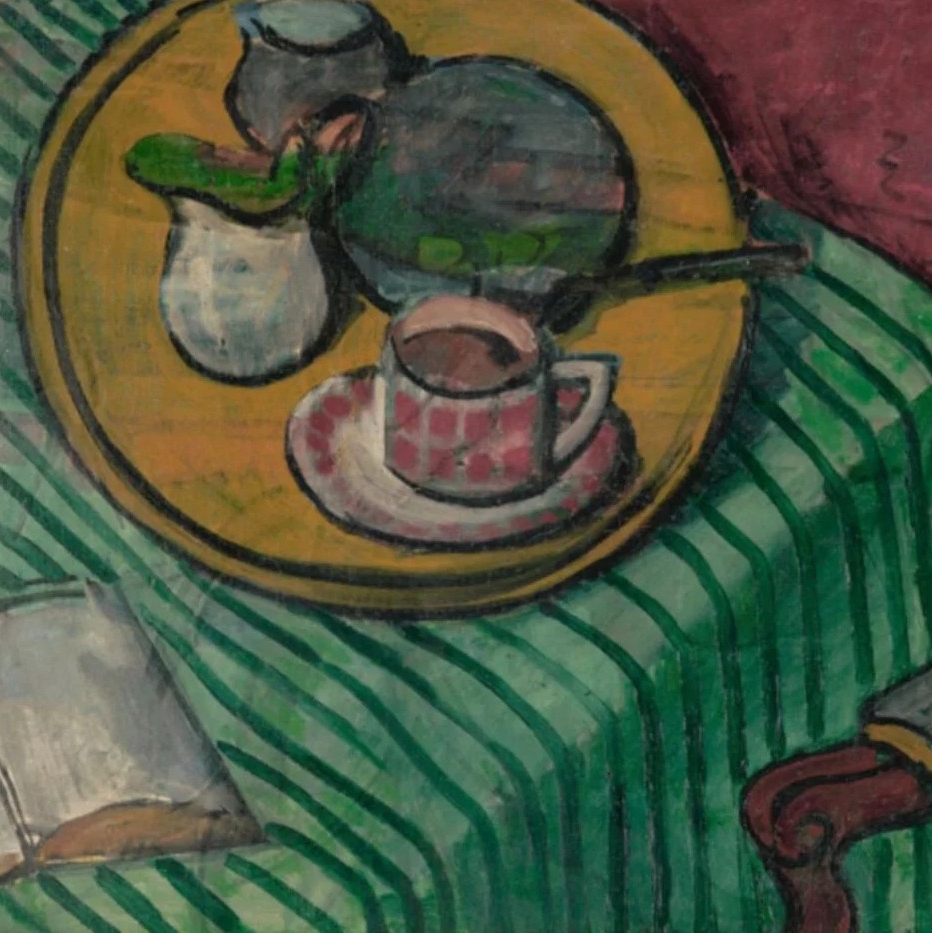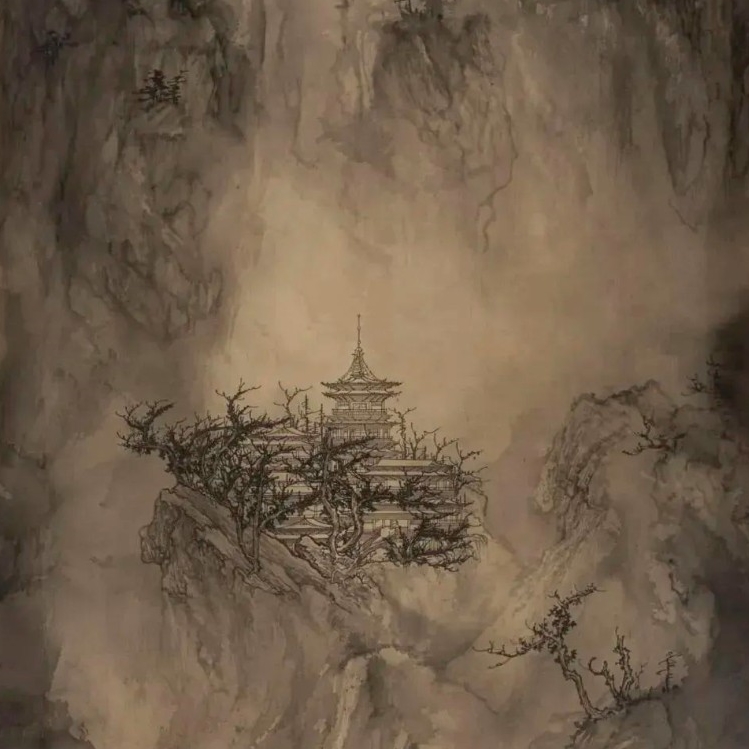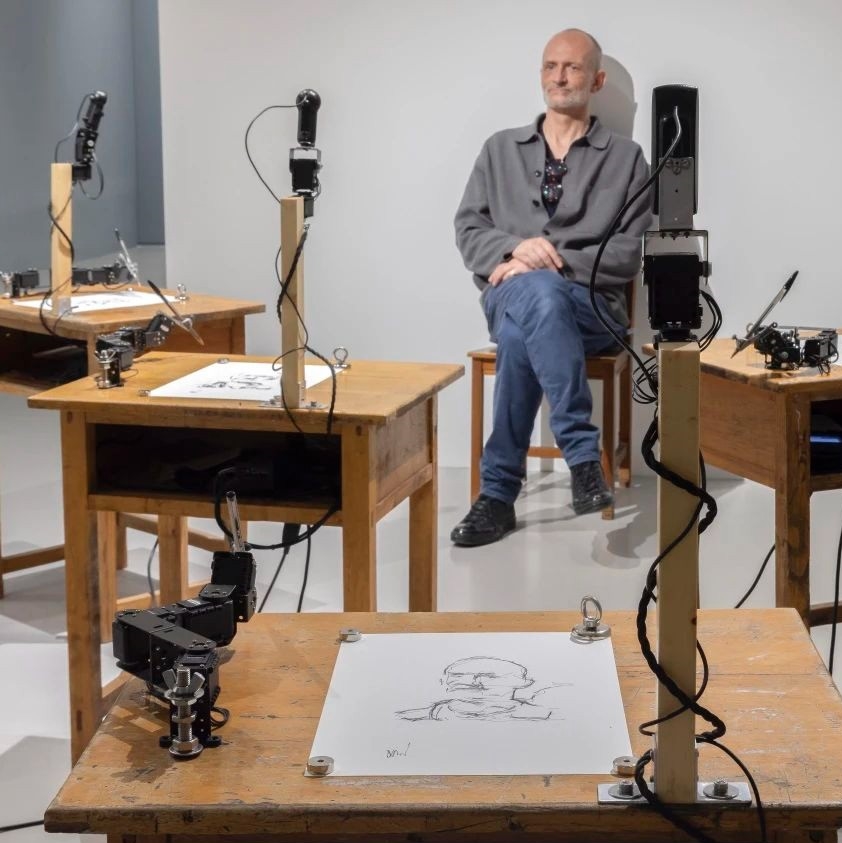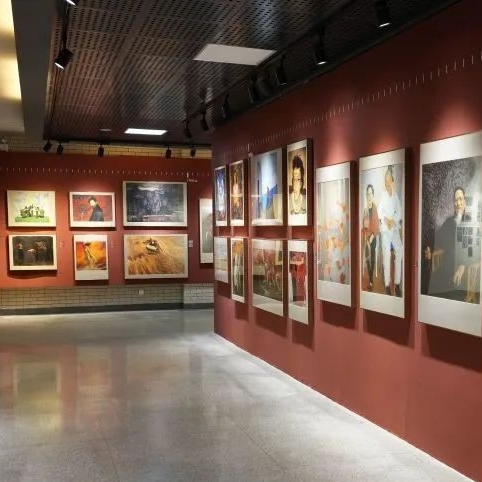
Tang Contemporary Art announces the opening of Diary of Inner Inspiration, the latest solo exhibition by Chinese artist Wu Yi, curated by Fiona Lu, at Tang Contemporary Art's Bangkok space. The exhibition, held from 7 May–11 June 2022, will lead us on an intellectual journey of the artist which mixes between daily realities and artist inner inspiration.
Often called a 'painter's painter,' Wu Yi is one of the most artistically gifted Chinese contemporary artists. For half a century, he has been one of the few artists who has successfully adapted traditional Chinese art into something more contemporary. He has always retained his academic foundation, even as he has attempted to transcend that tradition. He has passed through the imitation stage to achieve perfection in mediums that span oil painting, Chinese ink painting, and literary writing.

Wu Yi, Archer and the Dancer, 2021
Oil on canvas, 38 x 45.5 cm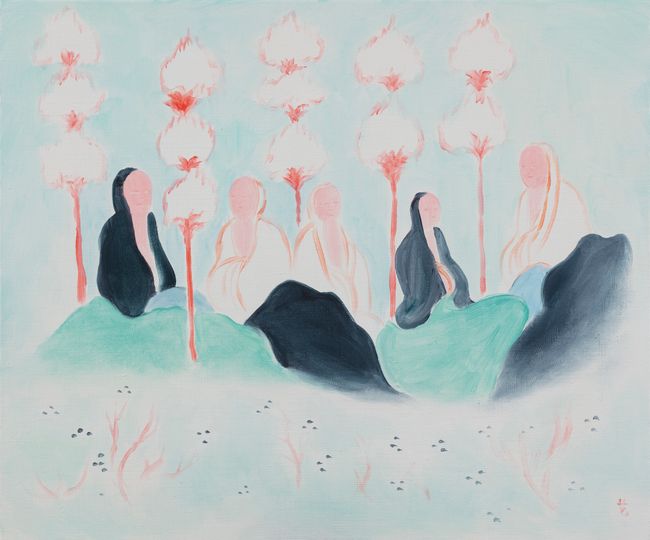 Wu Yi, Meditation, 2021Oil on canvas, 38 x 45.5 cm
Wu Yi, Meditation, 2021Oil on canvas, 38 x 45.5 cm
This exhibition will showcase 21 recent works from Wu Yi's Dunhuang series, including oil paintings and watercolours depicting Dunhuang Cave 98 and stories of the Buddha's previous incarnations. The show will also present a dozen oil sketches made in Prague, Aschaffenburg, and Beijing. In these works, Wu depicts the parts that move him the most: street scenes in Beijing, people in Prague, urban architecture in Aschaffenburg, and religious images in Dunhuang. In Diary of Inner Inspiration, Wu Yi brings us on an intellectual journey that intermingles lived realities (nature) and artistic talent (inner inspiration), engaged in a historical dialogue with the artist Zhang Zao from the Tang dynasty. Most of Wu's works are small in scale, so that they can be more easily carried as he travels. This interesting Chinese painter has woven travel into his life, feelings, and work, so he has experienced diverse cultural landscapes and local ways of life. He completely immerses himself in everyday life wherever he is. Clusters of small paintings offer diaristic glimpses of his nomadic spirit.

Wu Yi, Woman at the water station, 2018
Oil on canvas, 50 x 40 cm Wu Yi, Lunch, 2018Oil on canvas, 40 x 30 cm
Wu Yi, Lunch, 2018Oil on canvas, 40 x 30 cm
Born into a family of artists, Wu Yi naturally possesses an astounding talent for painting. Jing Hao wrote that an artist must observe the appearance of a thing to uncover the truth of it. The Eastern sensibility in Wu's oil paintings reflects his distinctive character, displaying depth in the lightness. Flat, bright, and innocent, these paintings appear to fly. Wu reduces the number of visual elements in his work, invoking the concept of the void from Chinese ink painting. With this technique, he can capture the amusing and refined aspects of Dunhuang paintings, as well as the beauty and sensuality of Czech women. He has cleared away the dust of old literati painting and distanced himself from a very traditional mode of calligraphy and ink painting, in order to push his work from mere taste to the realm of style. The atmosphere in his work is light yet intriguing and subtle without being ethereal. The paintings simply convey the beauty of the earth and the delights of human life.

Wu Yi, Klikov Piskovna No. 3, 2018
Oil on canvas, 32 x 22 cm
 Wu Yi, Woman in a red shirt, 2018Oil on canvas, 31.5 x 22.5 cm
Wu Yi, Woman in a red shirt, 2018Oil on canvas, 31.5 x 22.5 cm
The parallel threads of nature and sketching, religion and tradition, have always run through Wu Yi's oil paintings and they have been brought together in this exhibition. He has made sketches in cities around the world, repeatedly referencing traditional modelling techniques and the texture of Eastern splendour. Only someone who is very sensitive to life yet deeply fascinated by it could depict the everyday in such a bright and cheerful way. In the gaps between cultures, he shows the essence of everyday life. Wu Yi's connection to the present is manifested in his travels, memories, realisations, and paintings. The essence of Chinese culture has offered him the chance to wonder at nature and represent his true intentions. His city sketches, like an unfinished diary, are reflections of a fascinating process.
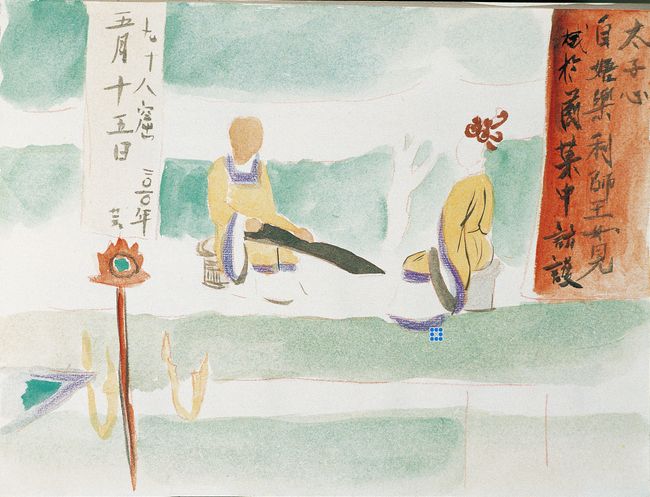
Wu Yi, Cave 98 from Dunhuang IV, 2018
Watercolour on paper, 18.5 x 24.5 cm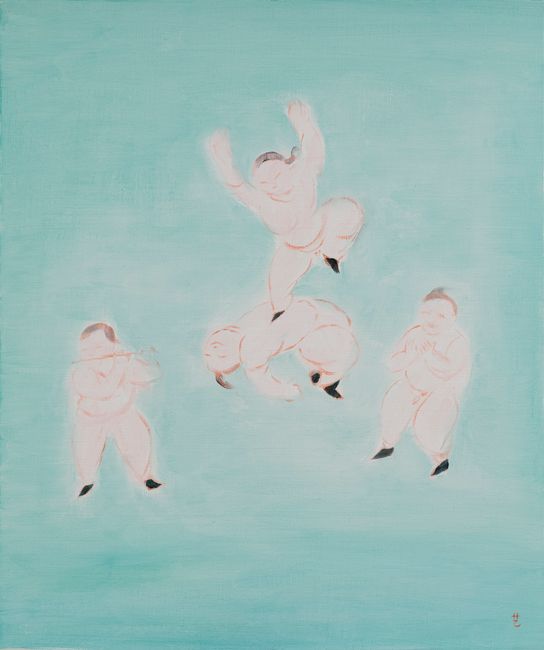 Wu Yi, Children Having Fun, 2021Oil on canvas, 45.5 x 38 cm
Wu Yi, Children Having Fun, 2021Oil on canvas, 45.5 x 38 cm
In his commentary on painting, Shi Tao stresses the need for spirit, fluidity, and immersion in an artist's brushwork. Wu Yi's Dunhuang series reinterprets cultural heritage from the Sui, Tang, and Five Dynasties periods by imitating the spirit of these works. These modern representations of ancient painting techniques are flawless yet spontaneous, reflecting larger interactions between the individual and Dunhuang. Wu noted that Dunhuang after a sandstorm had a sense of unreality, and to reflect this feeling, his depictions of Dunhuang have a rarefied air and lack the heaviness often present in religious paintings. With simplified compositions and restrained brushwork, his paintings have a timeless beauty. Wu Yi has learned from the ancients and from nature, which has helped him to find his inner inspiration and develop a distinctive contemporary painting style that does not simply follow the trends.
Fiona Lu | 25 April 2022
About the exhibition
Dates: 7 May–11 June, 2022
Venue: Tang Contemporary Art, Bangkok
Address: Room. 201–206, River City Bangkok, 23 Soi Charoenkrung 24, Talad noi, Sampantawong. Bangkok, 10100 Thailand
Courtesy of the artist and Tang Contemporary Art.


